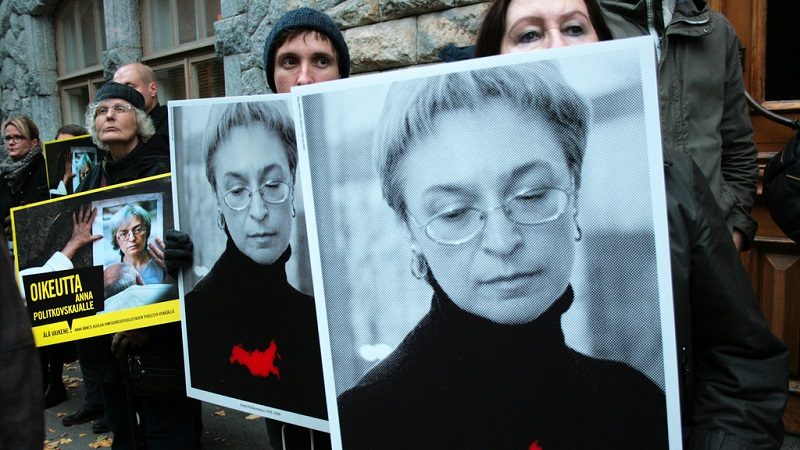The investigation into the murder of prominent Russian investigative journalist Anna Politkovskaya violated the European Convention on Human Rights, the Strasbourg-based European Court of Human Rights (ECtHR) ruled.
Politkovskaya, a Russian journalist, writer and human rights activist was shot dead in the lift of her apartment block in Moscow in 2006. She worked for the Russian newspaper Novaja Gazeta and was known for her opposition to the Chechen conflict and for criticism of President Vladimir Putin.
In a case that carries echoes of the investigation into the assassination of Maltese journalist Daphne Caruana Galizia, the ECtHR decided (by five votes to two) that the way the domestic investigation was conducted amounted to a violation of the procedural limb of Article 2 of the Convention, the right to life.
Following nine years of investigation and court proceedings, five individuals were eventually convicted of her murder. Those who commissioned the killing have not yet been identified.
The applicants, family members of the victim, alleged that the authorities breached their procedural obligation under Article 2 of the Convention by failing to carry out an effective investigation.
In its ruling, the Court placed emphasis on the status of the victim – an investigative journalist: “In cases where the victim of a killing is a journalist, it is of utmost importance to check a possible connection of the crime to the journalist’s professional activity”.
The domestic authorities’ scrutiny in the case concerning a contract killing must aim to go beyond identification of a hit man
The Court referred to a Recommendation on the protection and safety of journalists by the Committee of Ministers that “the conclusions of an investigation must be based on a thorough, objective and impartial analysis of all the relevant elements, including the establishment of whether there is a connection between the threats and violence against journalists and other media actors and the exercise of journalistic activities or contributing in similar ways to public debate.”
The Strasbourg-based court also said, “it is not persuaded that the investigation into Politkovskaya’s killing has met the adequacy requirement”.
In particular, it said that there was an “absence of genuine and serious investigative efforts taken with the view to identifying the intellectual author of the crime, that is, the person or people who commissioned the assassination”.
“The domestic authorities’ scrutiny in the case concerning a contract killing must aim to go beyond identification of a hit man,” the Court added.
The ECtHR noted there was no explanation given as to why the investigation was focused for a considerable number of years on a single line of inquiry, ignoring the applicants’ allegation that public officials may have been implicated in the killing, having regard to the victim’s media work.
The State had also failed to provide highly plausible and convincing reasons capable of justifying the length of the proceedings, thus entailing a breach of the promptness and reasonable expedition requirement of the Article 2 procedural obligation, the Court ruled.
Her family – mother, sister and two children – were awarded €20,000 of compensation in non-pecuniary damages.
Article 2: right to life
1. Everyone’s right to life shall be protected by law. No one shall be deprived of his life intentionally save in the execution of a sentence of a court following his conviction of a crime for which this penalty is provided by law.
2. Deprivation of life shall not be regarded as inflicted in contravention of this Article when it results from the use of force which is no more than absolutely necessary: (a) in defence of any person from unlawful violence; (b) in order to effect a lawful arrest or to prevent the escape of a person lawfully detained; (c) in action lawfully taken for the purpose of quelling a riot or insurrection.













